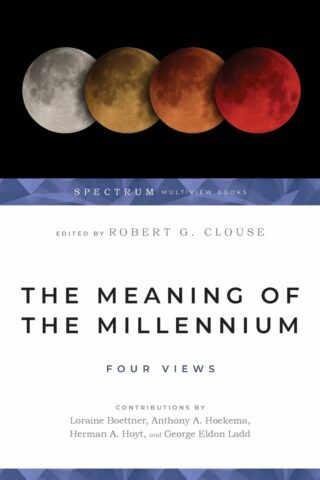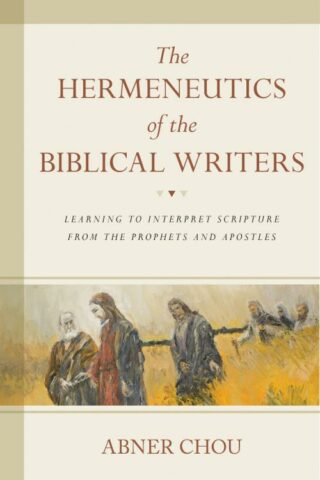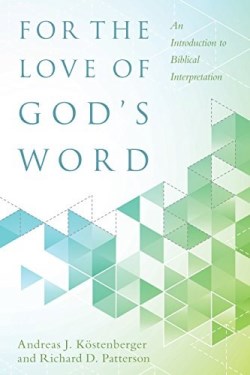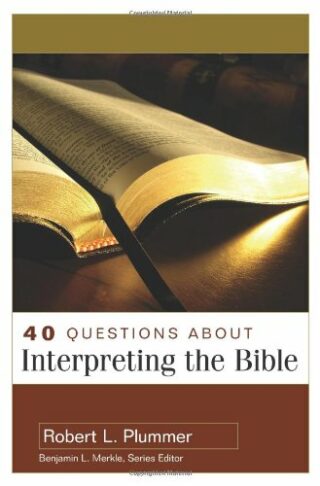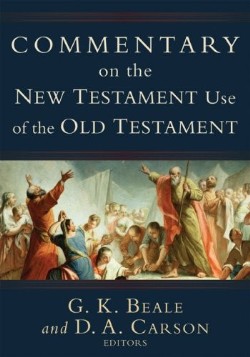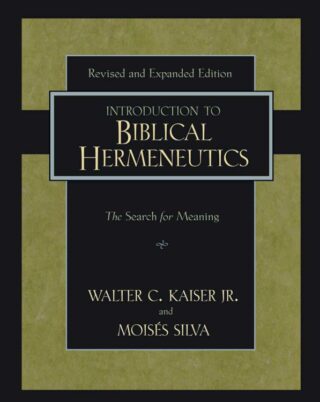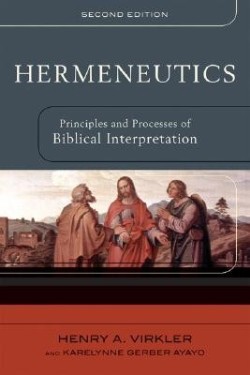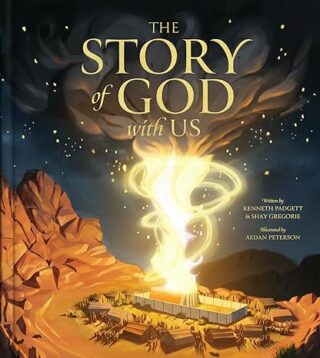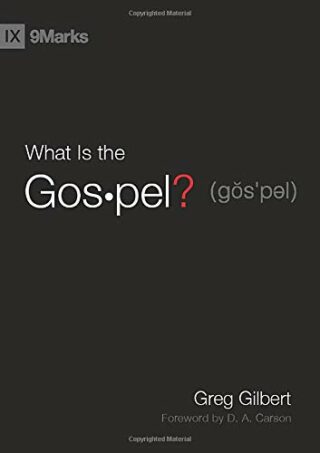Category
- Welcome!
- ~Books
- ~Pastor Mike Fabarez
- Apologetics
- Bible Journals/Journals
- Bibles
- Biblical Studies
- Biographies
- Booklets
- Christian Living
- Commentaries
- Cults
- Devotional
- Evangelism/Missions
- Family/Parenting
- Kids
- Marriage
- Men
- Ministry/Teaching
- Prayer
- Reference
- Sale
- Seasonal
- Spanish-Libros/Biblias en Español
- Teen
- Theology
- All Around Theology
- Angelology (Doctrine of Angels, Satans & Demons)
- Anthropology & Harmartiology (Doctrine of Man & Sin)
- Bibliology (Doctrine of the Word of God)
- Christology (Doctrine of Christ)
- Ecclesiology (Doctrine of the Church)
- Eschatology (Doctrine of Last Things)
- Pneumatology (Doctrine of the Holy Spirit)
- Proper (Doctrine of God)
- Soteriology (Doctrine of Salvation)
- Women
Hermeneutics
Showing all 7 resultsSorted by latest
Hermeneutics Of The Biblical Writers
$23.99Original price was: $23.99.$14.50Current price is: $14.50.Add to cartLearn to interpret the Bible from the biblical writers themselves
A method of interpretation–a hermeneutic–is indispensable for understanding Scripture, constructing theology, and living the Christian life, but most contemporary hermeneutical systems fail to acknowledge the principles and practices of the biblical writers themselves.
Christians today cannot employ a truly biblical view of the Bible unless they understand why the prophets and apostles interpreted Scripture the way they did. To this end, Abner Chou proposes a hermeneutic of obedience, in which believers learn to interpret Scripture the way the biblical authors did?including understanding the New Testament’s use of the Old Testament. Chou first unfolds the prophetic hermeneutic of the Old Testament authors, and demonstrates the continuity of this approach with the apostolic hermeneutic of the New Testament authors.
For The Love Of Gods Word
$36.99Original price was: $36.99.$24.49Current price is: $24.49.Add to cartAn introduction to a clear method of biblical interpretation
For the Love of God’s Word is an abridged, less technical version of Kostenberger and Patterson’s acclaimed Invitation to Biblical Interpretation. Students, teachers, and pastors alike will find this introduction to biblical hermeneutics to be an accessible resource with both breadth and substance.
Built on the premise that every passage requires careful scrutiny of its historical setting, literary dimension, and theological message, this volume teaches a simple threefold method that is applicable to every passage of Scripture regardless of genre. In addition, the book sets forth specific strategies for interpreting the various genres of Scripture, from poetry to epistle to prophecy. A final chapter is devoted to helpful Bible study resources that will equip the reader to apply Scripture to life.
This book will serve as a standard text for interpreting Scripture that is both academically responsible and accessible for pastors, teachers, and college students. This volume will enable students of Scripture to grow in love for God’s Word as they grow in the disciplines of study and discernment.
40 Questions About Interpreting The Bible
$22.99Original price was: $22.99.$12.18Current price is: $12.18.Add to cartIn 40 Questions about Interpreting the Bible, New Testament Professor Dr. Robert L. Plummer tackles the major questions that persons ask about reading and understanding the Bible.
Questions include:
- Does the Bible contain error?
- Were the ancient manuscripts of the Bible transmitted accurately?
- What is the best English Bible translation?
- Is the Bible really all about Jesus?
- Do all the commands of the Bible apply today?
- Why can’t people agree on what the Bible means?
- How do we interpret historical narrative?
- How do we interpret the Psalms?
- What does the Bible tell us about the future?
- What is the “Theological Interpretation of Scripture”?
- and many others
New Testament Theology (Reprinted)
$55.00Original price was: $55.00.$45.40Current price is: $45.40.Add to cartIntroduction
Part 1: The Fulfillment Of God’s Saving Promises: The Already-Not Yet
1. The Kingdom Of God In The Synoptic Gospels
2. Eternal Life And Eschatology In John’s Theology
3. Inaugurated Eschatology Outside The Gospels
Part 2: The God Of The Promise: The Saving Work Of The Father, Son, And Spirit
4. The Centrality Of God In New Testament Theology
5. The Centrality Of Christ In The Synoptic Gospels
6. The Messiah And The Son Of Man In The Gospels
7. The Son Of God, I Am, And Logos
8. Jesus’ Saving Work In The Gospels
9. Jesus’ Saving Work In Acts
10. The Christology Of Paul
11. The Saving Work Of God And Christ According To Paul
12. The Christology Of Hebrews-Revelation
13. The Holy Spirit
Part 3: Experiencing The Promise: Believing And Obeying
14. The Problem Of Sin
15. Faith And Obedience
16. The Law And Salvation History
Part 4: The People Of The Promise And The Future Of The Promise
17. The People Of The Promise
18. The Social World Of God’s People
19. The Consummation Of God’s Promises
Epilogue
Appendix: Reflections On New Testament Theology
IndexAdditional Info
While none of the New Testament documents claims to provide a theology on its own, Thomas Schreiner suggests that certain recurring themes emerge from the study of the whole. In this volume, he traces key themes as they appear throughout the New Testament canon, exploring the emphases that emerge from a detailed reading of the texts.Based on solid exegesis of all the key texts, Schreiner’s approach leads him to a more unified view of core New Testament teaching. He focuses particularly on two overarching themes. The first concerns the unity of redemptive history and the kingdom of God. The New Testament takes up Old Testament imagery and affirms that the kingdom has come (although it remains unfulfilled) in Jesus Christ. The second related theme concerns the goal of the kingdom–the glory of God through the work of Christ and the empowering presence of the Spirit. In the second half of the work, Schreiner takes up the question of what these themes mean for the life of the believer and the ministry of the community of faith.
Although this substantial and comprehensive volume will be of great interest to scholars, Schreiner’s first concern is to provide an accessible guide for students and pastors. He has succeeded admirably, and readers will find here a lucid exposition of the theology of the New Testament writers.
Commentary On The New Testament Use Of The Old Testament (Reprinted)
$74.99Original price was: $74.99.$37.50Current price is: $37.50.Add to cartIn this major new reference work, leading evangelical scholars provide students, scholars, and pastors with comprehensive commentary on every quotation, allusion, and echo of the Old Testament that appears from Matthew through Revelation.
Introduction To Biblical Hermeneutics (Expanded)
$39.99Original price was: $39.99.$9.97Current price is: $9.97.Read moreThis standard hermeneutics text has been updated and expanded, allowing the authors to fine-tune their discussions on fundamental interpretive topics. Four new chapters have been added that address more recent controversial issues. The coauthors hold different viewpoints on many topics addressed, making for vibrant, thought-provoking dialogue on this crucial discipline.
Hermeneutics : Principles And Processes Of Biblical Interpretation (Reprinted)
$24.99Original price was: $24.99.$12.50Current price is: $12.50.Add to cart1. Introduction To Biblical Hermeneutics
2. The History Of Biblical Interpretation
3. Historical-Cultural And Contextual Analysis
4. Lexical-Syntactical Analysis
5. Theological Analysis
6. Special Literary Forms: Similes, Metaphors, Proverbs, Parables, And Allegories
7. Special Literary Forms: Prophecy, Apocalyptic Literature, And Types
8. Applying The Biblical Message: A Proposal For The Transcultural ProblemAdditional Info
If non-specialists learn the correct principles and processes for hermeneutics, much more accurate and helpful biblical interpretation can be accomplished. This book gives the reader not only an understanding of the principles of proper biblical interpretation but also the ability to apply those principles in sermon preparation, personal Bible study, or writing.


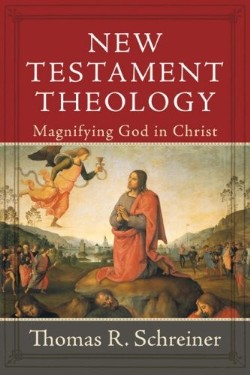 New Testament Theology (Reprinted)
New Testament Theology (Reprinted) 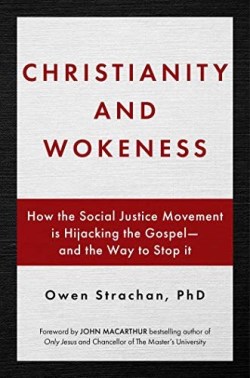 Christianity And Wokeness
Christianity And Wokeness  B-ESV STUDY
B-ESV STUDY 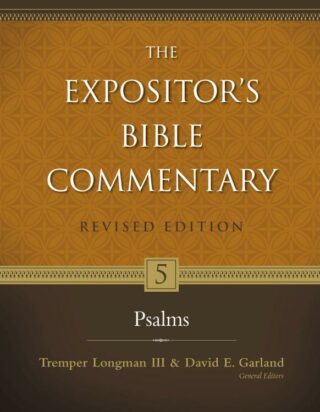 Psalms : Revised Edition (Revised)
Psalms : Revised Edition (Revised)  B-ESV STUDY PERSONAL SIZE
B-ESV STUDY PERSONAL SIZE  Stop Loving the World
Stop Loving the World 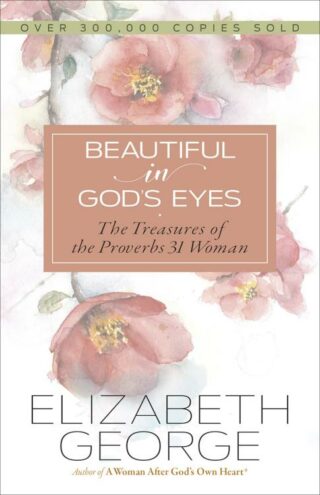 Beautiful In Gods Eyes
Beautiful In Gods Eyes  Walking With Jesus on Campus
Walking With Jesus on Campus  Finally Free : Fighting For Purity With The Power Of Grace
Finally Free : Fighting For Purity With The Power Of Grace 


